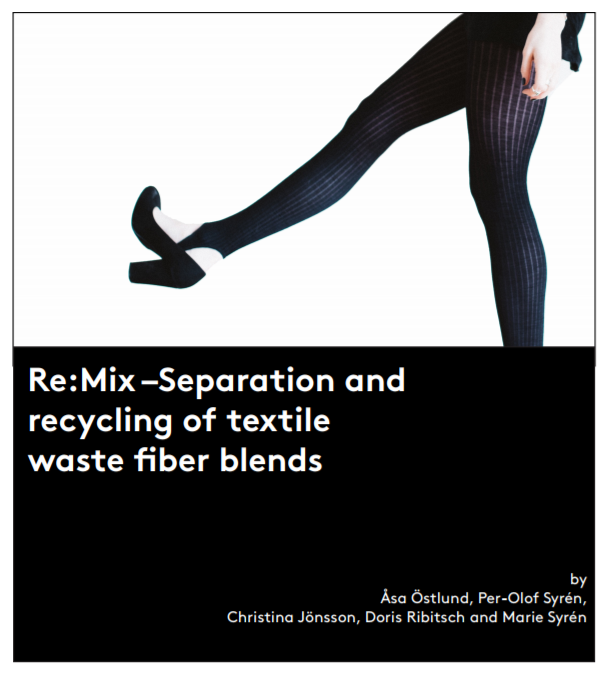 Textile blends containing elastane and/or nylon are very problematic in a recycling processes. Neverthless, these materials are growing on the market and can be found in for example stretch jeans and leggings. Therefore, new recycling solutions are highly sought after.
Textile blends containing elastane and/or nylon are very problematic in a recycling processes. Neverthless, these materials are growing on the market and can be found in for example stretch jeans and leggings. Therefore, new recycling solutions are highly sought after.
The project Re:Mix within Mistra Future Fashion undertakes this problem with the ambition to accelerate the transition for the textile industry towards a circular economy. The project partners identified two separation methods, which could also work in combination, 1) a melting of synthetic fibers; and 2) design of new specific enzymes that will act as biocatalysts for the degradation of a specific polymer that further facilitates the resynthesis of the polymers. The method provides nylon or elastane pellets that can be used as raw materials in processes such as spinning and compression molding. The first phase of the project mapping market possibilities were completed in September and the report Re:Mix I is now available on our website. DOWNLOAD
Re:Mix will now enter phase two where focus will be on enzyme design in combination with melt-filtration evaluation. The project was granted further funding from Re:Source, continuing until June 2019. The researcher on enzymatic design within Re:Mix II, Dr Per-Olof Syrén (KTH/SciLifeLabs) has also received Formas funding for “TexZymes” to further develop the enzymes that may be relevant in Re:Mix. Partners within Re:Mix II are BOKU, Boob Design, Fearing, Houdini Sportswear, I:Collect, KTH Royal Institute of Technology, Radici Yarn, RISE, Swedish Stockings, Swerea IVF, Texaid Textilvertungs and Invista.



